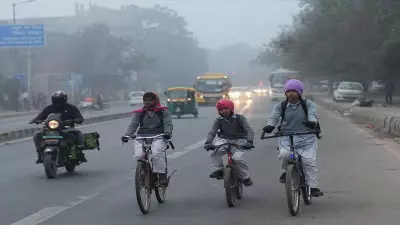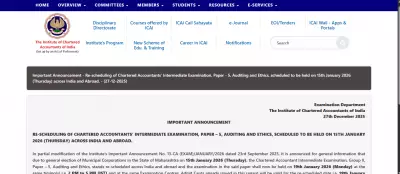
In a dramatic shift that has sent shockwaves through the Indian student community, Canadian immigration authorities are now rejecting nearly three out of every four study permit applications from India. The massive crackdown comes amid escalating concerns about document fraud and systemic abuse of the international education system.
The Staggering Numbers Behind Canada's Visa Crackdown
Recent data reveals that Canada's rejection rate for Indian study permit applications has skyrocketed to approximately 75%. This represents a dramatic increase from previous years and reflects the government's growing apprehension about fraudulent activities within the application process.
Immigration officials have identified several red flags that are contributing to this unprecedented rejection rate:
- Questionable financial documents and proof of funds
- Suspicious academic credentials and language test results
- Applications from non-genuine students using education as immigration pathway
- Concerns about applicants' intentions to return home after studies
Why Canada is Taking Such a Hard Stance
The Canadian government's tough stance stems from multiple factors that have been brewing in recent years. The integrity of the international student program has come under scrutiny following several high-profile cases of fraud and exploitation.
Canadian institutions have expressed concerns about some students arriving with inadequate preparation for academic success, while immigration authorities worry about the system being used primarily as a backdoor route to permanent residency rather than genuine educational pursuit.
The Ripple Effect on Indian Students and Families
This development has created significant uncertainty for thousands of Indian students and their families who have invested substantial resources in pursuing Canadian education dreams. Many have already paid application fees, tuition deposits, and invested in preparation for what they believed would be their educational journey abroad.
The situation has become particularly challenging for:
- Students who had made financial and academic commitments
- Education consultants and agents facing credibility issues
- Canadian colleges and universities that rely on international student revenue
- Families who invested life savings in their children's overseas education
What This Means for Future Applicants
Prospective Indian students now face a much more rigorous application process. Canadian immigration authorities are implementing stricter verification procedures and demanding more substantial evidence of genuine study intentions and financial capability.
Experts suggest that applicants should focus on demonstrating strong academic backgrounds, legitimate financial support, and clear career plans that align with their chosen programs. The emphasis has shifted toward quality over quantity in Canada's approach to international student admissions.
As the situation continues to evolve, both governments are expected to engage in diplomatic discussions to address these concerns while ensuring that genuine students aren't unfairly penalized by the crackdown on fraudulent activities.





